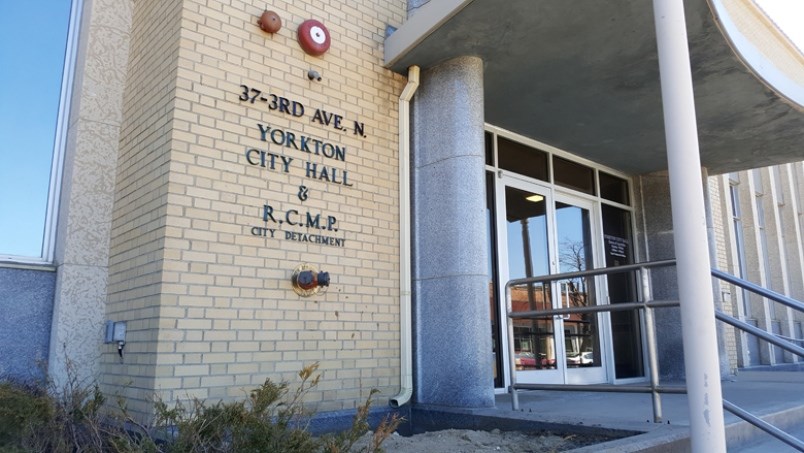YORKTON - Following equipment failures at the H.M. Bailey Water Pollution Control Plant Council approved a Phase 1 expenditure of $719,000 for a new boiler at its regular meeting Monday.
The plant, “recently had one of its two boilers locked out by representatives from the Technical Safety Authority of Saskatchewan (TSASK) following a mandatory inspection,” explained Jacob Perpeluk – Waterworks Manager of Environmental Services with the city.
“With only one boiler remaining—a 34-year-old unit—the plant is at considerable risk as it enters the heating season. This single boiler is responsible for heating multiple areas of the facility and supporting the solids digestion process, which is a critical part of the City’s wastewater treatment operations. Given the potential for further equipment failure, there is an urgent need to replace the locked-out boiler to prevent equipment from freezing and to ensure uninterrupted plant operations throughout the winter months.”
On July 2, 2024, during annual maintenance and a mandatory inspection by the TSASK, one of the Cleaver Brooks boilers (Boiler 647) was shut-down and locked-out due to severe internal corrosion and other critical deficiencies. The inspection uncovered significant corrosion around the front tube sheet to shell welding and signs of long-term degradation, necessitating a requirement to conduct extensive repairs and non-destructive testing (NDE) for micro-cracking, which is a costly process. This situation was unexpected for Environmental Services staff, as the most recent TSASK internal inspection conducted in 2022 reported: “There were no deficiencies identified during this inspection. No corrective action was required,” detailed a report circulated to Council.
With Boiler 648, the remaining unit, also operating beyond its designed life expectancy and now serving as the sole heat source for the identified processes and areas, the plant is at significant risk if this boiler fails, especially with the heating season approaching, it continued.
The overall situation is actually more dire, continued Perpeluk.
“In addition, the heating system in the Aeration Reactor Building (Area 300) has also been red-tagged by a certified plumber after a failure event and subsequent service call,” he said. “. . . Both units have now failed and have been locked out; the exterior unit was locked out and abandoned in 2012, while the interior unit was locked out mid-winter, 2023.”
As background Perpeluk explained the plant depends on two 3,500,000 BTU Cleaver Brooks fire tube boilers, which were installed in 1990, to supply heating to four of the seven facilities within the treatment plant.
The system was designed to operate in a lead-lag configuration, where each boiler can fully back up the other to meet operational requirements. While these boilers help maintain temperatures in these areas as part of the plant's overall building management design, their primary function is to sustain the temperatures required for the solids (sludge) digestion process, which converts sludge into Class B bio-solids.
Environmental Services staff have been collaborating with the Engineering Department and various contractors throughout the summer of 2024 to address the compounding heating issues at the WPCP. Their efforts have resulted in the development of a two-phase plan to achieve both immediate and long-term solutions, noted the report.
“Given the criticality of this situation, immediate action is required. Entering the heating season without redundancy in the WPCP boiler system or the ability to reliably heat Area 300 poses substantial risks, potentially jeopardizing the WPCP’s ability to operate,” said Perpeluk.
As a result a tender went out for the initial boiler replacement, with three received.
The bid of $574,990.00 received from Vetted HVAC Services was deemed to be the best value as it was the lowest submitted bid, said Perpeluk. With related costs the project budget is $719,000.
“To expedite the process, reduce lead times, and mitigate delays during winter, Environmental Services was authorized to pre-order the equipment specified in Phase One by Council at the September 9, 2024 meeting. This approach is supported by including equipment specifications identical to City-owned infrastructure in the tender, ensuring that all bidders will be required to install the specified equipment. This process allowed the City to pre-order these items and shorten lead times. This strategy ensures that the equipment remains reusable in similar facilities (QSWTP/COC) rather than becoming obsolete with the WPCP expansion. Any costs incurred from pre-ordering equipment was incorporated into the tender and will be recuperated as a condition of the tender award.
Given that these failures were unforeseen during 2023 budget deliberations, the required work for Phase One has not been budgeted. Consequently, this tender approval is presented to Council as an emergency expenditure of $289,000.00 that will require funding through Utility Reserves. This conclusion necessitated a phased approach to the project to minimize costs categorized as emergency expenditures,” he added.
Design work for Phase Two will commence immediately after Phase One, ensuring a near-seamless integration of additional equipment. This phase will be drafted and included in the 2025 Capital Budget Plans to minimize emergency expenditures. Equipment will be specified similarly to Phase One, with City-owned equipment detailed in the tender documents to ensure the City acquires multiple complete spares of critical heating equipment for potential use at the QSWTP and COC, detailed the report.
Council was unanimous in approving the project tender.






